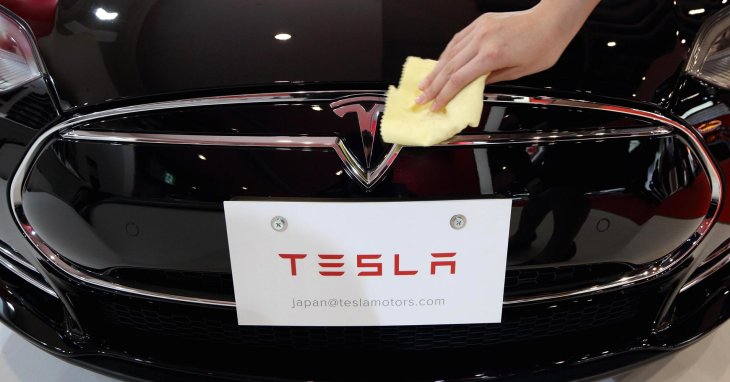YAHOO AUTOS
Imagine owning the most popular automaker in the United States. Now imagine a special interest group eliminating your ability to serve over 10 million Americans unless you did business with their unique cartel.
That's in essence what happened right before Labor Day weekend, when the Georgia Auto Dealer Association filed a petition with state officials seeking to cancel Tesla's license to sell its cars in the state of Georgia.
Tesla's crime? Selling 173 cars directly from a factory-owned store located 25 miles away from Atlanta, the only Tesla retail location in Georgia. The dealers say Tesla can only sell 150 cars a year from the shop under state rules, and therefore should lose its dealer license entirely.
“It’s just very simple -- we want them to comply with the law the way others are,” Bill Morie, president of the Georgia dealers association, told Automotive News
.
The elimination of one store in a state of 10 million people may seem like a minor blow given that there is still a five-month waiting list for the Tesla Model S. But the long-term cost to Tesla may be far greater than most consumers and investors would imagine.
If the dealers prevail, here's where the nearest Tesla outlets would be, and their respective distances from metro Atlanta: Nashville: 4 hours
Tampa: 6 hours
St. Louis: Over 8 hours.
How many of you would be willing to travel four hours each way just to look at one car?
As a car dealer, I have become well acquainted with the age-old saying "people buy with their eyes," and there's a lot of truth to it. The reason why car dealers pay millions of dollars for prime commercial real estate is because all those eyeballs browsing up and down the road translate into sales.
People buy as much from convenience as they do from exposure. Tesla's competitors such as the Chevy Volt and Nissan Leaf are sold at thousands of dealers throughout America, and nearly all of them are located in areas where tens of thousands of consumers go to and fro every day.
These locations give these manufacturers a huge advantage in the new-car marketplace. By fighting Tesla's ability to compete without a dealer network, these manufacturers and dealers have carved out a no-Tesla territory that now stretches through 26 states and 200 million consumers.
In those states, Tesla can't sell directly to the public. Many of those states have enacted legislation that would also limit your ability to even test drive a Tesla.
Meanwhile, dealers tout the benefits of the current system, such as the video above made by the National Automobile Dealers Association, which never mentions Tesla but warns that going without dealers will only hurt consumers.
This is possible becase special-interest groups in the auto industry have extremely tight relationships with statehouse legislators. These relationships are so well-honed that certain dealer-sponsored legislation can often pass unanimously —even if it will amount to a substantial tax increase for the citizens of that state.
That is exactly what took place in Georgia in 2013. Private sales of motor vehicles used to be non-taxable in the Peach State. A private-party transaction resulted in no taxes charged or collected between the parties. This law made sense, since most car owners are not car dealers.
Unfortunately for Georgians, the state wanted more revenue. This resulted in the introduction of a "Title Added Value Tax" which meant that everyone would pay a flat 6.5% tax based on a vehicle's value. Everyone paying the same sounds like a fair deal, but in the end that's not what happened.
Georgia dealers that self-finance vehicles (buy-here, pay-here dealers) were given a 2.5% tax reduction that lowered their tax rate to only 4%. Also, trade-ins were allowed to be used as deductions, which gave dealers another edge over private sellers. The bill passed unanimously through the Senate with 95% of House members voting for it as well.
This level of complicity between dealer associations and legislators is what Tesla now has to deal with in 26 states. Every prohibition of direct sales to the general public leaves Tesla with a double-edged sword that harms the company and their consumers.
Either Tesla and Elon Musk can give in, hire dealers, pay them incentives and rebates to market their vehicles which will then be passed onto consumers, and eventually cede creative control over how it sells its product.
Or it can pursue the legislative and legal fights, where the needs of common citizens often don't matter.
I'm glad that Tesla has taken the high road. I know a lot of dealers who welcome competition and work hard to earn their customers' loyalty and respect. As a car dealer myself, I just wish more of my peers would accept the tenets of free enterprise.


No comments:
Post a Comment